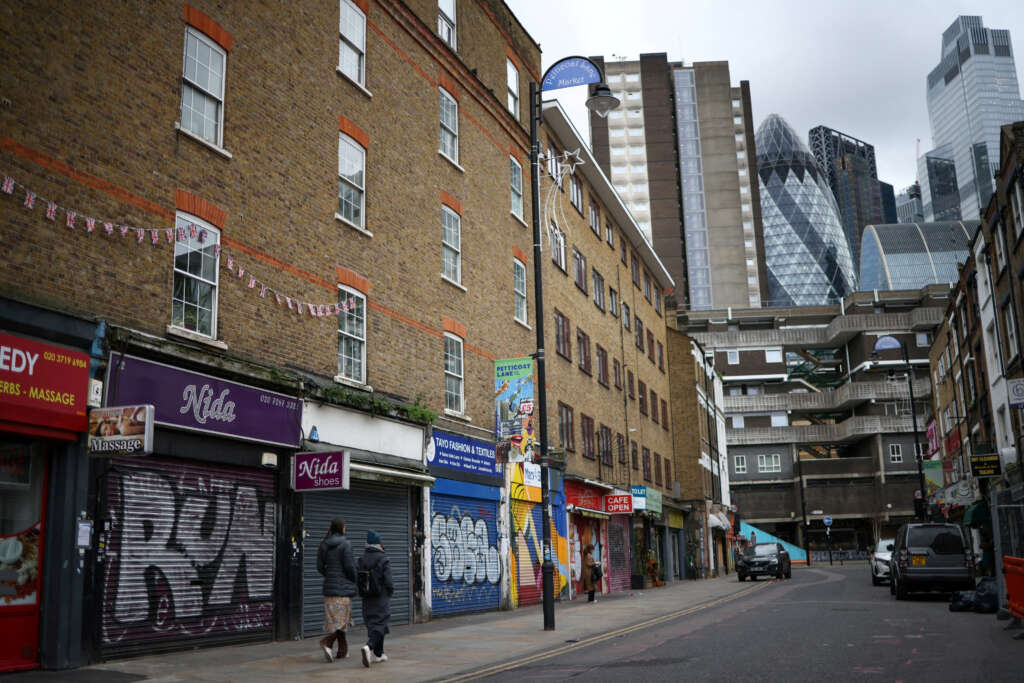
By Suban Abdulla
LONDON (Reuters) – The British Chambers of Commerce (BCC) forecast on Wednesday that the country’s economy is on track to shrink less than expected this year and avoid the two quarters of negative growth which mark a technical recession.
The brighter outlook chimed with other measures of Britain’s economy including purchasing managers’ index (PMI) surveys and consumer confidence data that have improved in recent weeks.
The BCC forecast that gross domestic product (GDP) would fall by 0.3% this year, a smaller decline than its previous forecast of a 1.3% fall, after stronger activity at the end of 2022.
Official data showed the economy narrowly avoided a recession after zero growth in the final quarter of 2022. Figures for January are due to be published on Friday.
On a quarterly basis GDP is forecast to fall 0.3% in the first quarter of 2023, before showing zero growth in the second quarter and rising by 0.2% in each of the third and fourth quarters of 2023.
Economists polled by Reuters last month forecast the economy would contract 0.4% in the first and second quarters and then decline 0.1% in Q3.
The BCC expects the economy to grow 0.6% next year, while the Bank of England (BoE) predicted a quarter percent contraction for 2024 last month.
Despite the upward revision, businesses face a tough year ahead amid struggles with staff shortages, rising taxes and energy bills, Alex Veitch, director of policy at the BCC, said.
Veitch said the economy risked falling behind competitors if chancellor Jeremy Hunt did not provide incentives to help firms in his annual budget next week.
“If he backs them, by acting on childcare to ease staff shortages and helping them manage their energy costs, then the UK economy could still prosper,” he said.
Britain is the only Group of Seven economy that has yet to rebound to its pre-pandemic size and the BCC forecast it would not return to that level until the final quarter of 2024.
While consumers and businesses still face a hit from double-digit inflation, the BCC expects inflation to drop to 5% in the fourth quarter and 1.5% by late 2024.
British inflation fell to 10.1% in January, edging further away from the 11.1% peak it reached in October 2022, but is still more than five times the BoE’s 2% target.
The BCC expects BoE rates to be a quarter-point higher at the end of the year than they are now – taking rates to 4.25% – and then for rates to be cut to 3.5% by late 2024.
(Reporting by Suban Abdulla; editing by David Milliken)


